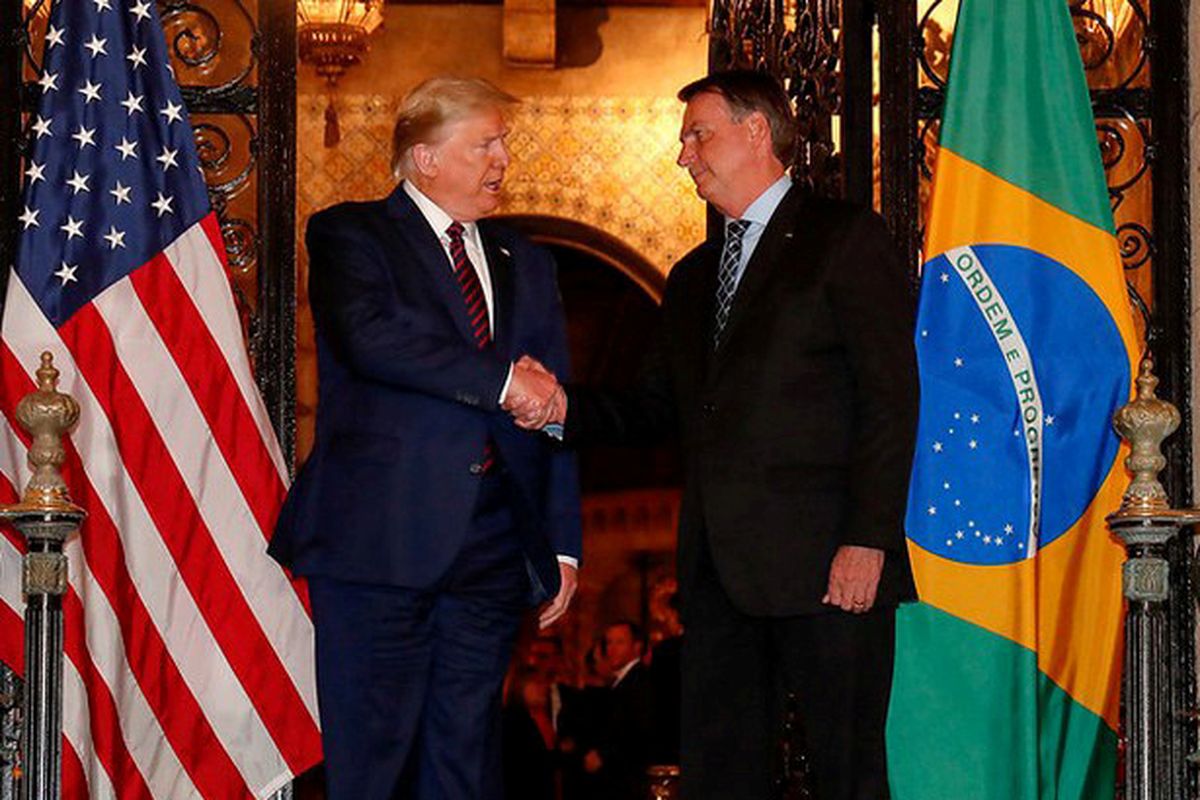In the Coronavirus Pandemic Battle, Populist Leaders Perform Poorly

And similar to President Trump printing his signature on the $1,200 coronavirus rescue checks that went out from the US Treasury, Bolsonaro’s government worked to make sure recipients in Brazil knew who to thank — part of what Shifter calls a populist leader’s playbook of adulation and the projection of power.
“If they begin to go along with science. they’re buying into the establishment way of thinking that many of their base sees as the main cause of the country’s problem to begin with,” he says. “It’s seen as kind of giving in or diluting their message, and so they refuse to do so.”
“If you rely on science and expertise, the risk is that it makes you seem weaker because you don’t know everything," Shifter says.
In Mexico, where 41,000 people have now died, López Obrador pushed to reactivate the economy while infections were still rising.
Several governors refused to go along with the federal government’s push to reopen.
López Obrador continued traveling the country and wading into crowds for weeks after the country confirmed its first infection Feb. 28.

Instead, he showed people the amulet that he said kept him safe and did not wear a mask publicly until this month.
As the deaths spike in populist-led countries, it is an entirely different world in most of Europe, where the disease is now on the wane, though not yet defeated.
German Chancellor Angela Merkel, speaking at the European Parliament last week, cited the need for consistent leadership, community spirit and “democratic cohesion."
“Fact-denying populism is being shown its limits,” she declared.
Read also: EU Leaders Seal the Deal on $2.1 Trillion Coronavirus Recovery Fund
“We are seeing at the moment that the pandemic can’t be fought with lies and disinformation, and neither can it be with hatred and agitation,” Angela stated.
“In a democracy," she added, "facts and transparency are needed.”
The results of that approach: With a population of 84 million, a quarter of the size of the United States, Germany has suffered just over 9,000 Covid-19 deaths.
In the United States, the number is 142,000 and rising.
(Writer & Editor: John Daniszewski)
Source: https://apnews.com/2a4b5159e9c8b1510973801297243c3d
Simak breaking news dan berita pilihan kami langsung di ponselmu. Pilih saluran andalanmu akses berita Kompas.com WhatsApp Channel : https://www.whatsapp.com/channel/0029VaFPbedBPzjZrk13HO3D. Pastikan kamu sudah install aplikasi WhatsApp ya.

































